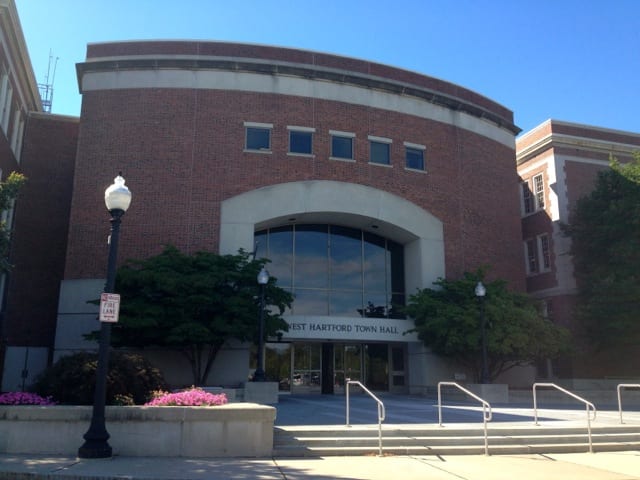Lauren Mahler is am a junior at Hall High School, a multi-sport athlete participating in crew and varsity lacrosse, a middle school tutor, and takes several AP classes. She states that she opposes Option Two as a solution to student sleep deprivation and stress and said that she does not believe students and the board have fully considered the consequences, and does not believe the majority of students are aware that the vote is scheduled for Nov. 20.
By Lauren Mahler
I have already experienced later school start times. Over the summer I took an accelerated EMT course. The class started at 9 a.m. and went until 5 p.m. This schedule would appear to be a dream come true for advocates of later school start times. Let me tell you what happened.
The later school start didn’t improve my total hours of sleep. With the amount of homework required for the course, I, like my peers, got eight hours or less of sleep and was constantly sleep deprived. Just like during the school year, there will always be jobs, homework, and extracurriculars and the three inevitably inhibit a student from fully realizing sleep. What we can do, however, is strategically plan when these activities occur. Scheduling them later in the day is a bad option.
The West Hartford Board of Education believes a late start time and end time (Option Two) will help us. Option Two would change the high school day from 7:30 a.m.-2:15 p.m. to 8:10 a.m.-2:55 p.m. with students purportedly receiving an extra 30-45 minutes of sleep. The push for change is well intentioned, but short-sighted. The practical application is not sound and thus widespread tangible benefits won’t be realized; the pitting of one group of students against another, with one group getting more sleep and the other receiving less, is expected to occur. The board should vote “no” on Nov. 20 to avoid privileging certain students and disadvantaging others.
The initial survey sent out by the board was misleading as it didn’t ask students how getting out later would affect them and thus didn’t prompt full consideration by students and parents. As one Hall junior, Nina Faynshtayn, said, “I wrote an article advocating for later school start times last year when I was mad (about student stress), but now I understand sports will be screwed up, students’ time to receive help after school could be limited, and I feel bad about the people who have to work to support their families. In all honesty though, it won’t really affect me and the board is so progressive and I love them for it, but,” she tells me, “but …” and then trails off.
It is the “but” that gets me. “But the board will pass it, but the board is wrong, but I really don’t care” that is what she insinuates. This expression of apathy for others’ potential misfortune has been repeated constantly in my numerous interviews and casual conversations. I don’t fault my peers for it. But it is personal. I am a member of several subgroups that will be affected if school start times shift to an early start and a later dismissal.
Athletes make up 58 percent of the student population at Hall and 52 percent of the student population at Conard according to Jason Siegal, West Hartford Public Schools athletic director, and will be among one of the biggest groups negatively impacted. As the school board states in their study, athletes using offsite facilities such as those involved in swimming, golf, hockey, and crew, will have a “significant loss of practice time and reduction or loss of home competition.”
High school and youth recreational sports equally will have “civil twilight hours … curtail practice by mid-October” and most notably “the delay will require early dismissal for a majority of away games and home games.”
Missing instruction regularly for seventh and eighth period classes will result in poor grades and a significant rise of athletes’ stress due to the need to complete missed classwork and learn course material on their own time. Extra help for missed classes will be less accessible due to the same reason athletes missed the instruction in the first place: they have to rush off to sports games and practices alike.
Participation in sports isn’t the sole activity of students outside of school. The later school start time will, as the board admitted, likely force a student to choose between their extracurriculars limiting the diversity of their participation. This will be an especially hard decision for someone who needs to maintain a job or wants to be involved in athletics or other extracurriculars. If students with outside extracurriculars choose to keep them, they, like athletes, will need to rush after school to make the usual start time. The need to rush will result in missed time to speak with teachers after school and homework is delayed until late at night.
By arguing that athletes and students with off campus activities can just report early to school to receive extra help, their purported extra sleep time has been negated. Therefore, late start provides no benefit to them.
Family time is invaluable, especially family dinner. Research has consistently shown that adolescents who eat family meals five to seven times a week are twice as likely to get A’s in school and three times less likely than their peers to abuse drugs, tobacco, and alcohol compared to those who eat with their family less than three times a week. With school start pushed back, involved high schoolers are likely to come home too late to be involved in family dinner. Eating alone can promote feelings of isolation, dinner is often the only time parents get to relate to their kids; without this time, high schoolers are only more likely to become disenfranchised from family life.
The movement for late start was created with a focus on high schoolers, as such, the negative effects on middle schoolers is often overlooked. High schoolers currently providing tutoring to at risk middle schoolers will be less likely to have the time after school to continue this volunteerism. Additionally, the general middle school population by arriving home earlier, will spend more time unsupervised from either a high school babysitter or parent returning from work. As one parent said, “I want to be able to monitor him, I don’t want him to use that time to get into something he shouldn’t.”
We individuals against Option Two support increased sleep and reduced stress, we just oppose the Board’s solution. I optimistically offer an alternative.
To reduce student stress and maximize sleep potential, the Board should consider reducing high school hours and maintain the later school start times. By cutting each period by five minutes, school could be shortened by 40 minutes. Reducing each class to 42 minutes will have minimal impact on student learning. By getting out earlier, students will have more time to complete their after school obligations while maximizing their sleep hours. High school teachers should be contracted until 2:55 p.m. This would allow for a Homework Club where teachers are present to provide professional tutoring. Students who are academically at risk can be required to stay at Homework Club until 2:55 p.m., the currently-proposed end time if the district adopts a late school start time.
Why not do this? After all, the district can do so legally. According to Connecticut law, Educational Opportunities Sec. 10-16 Length of school year, districts must have a minimum of 180 school days and 900 instructional hours. Currently West Hartford students receive about 1,161 instructional hours a year. With the proposed shortened school day, West Hartford high schoolers will receive about 1,104 hours of instruction, still well over the required amount. The middle school and elementary schools should retain the 6 hours and 45 minute day at the delayed start to allow for high school babysitters to be present to monitor younger children. Alternatively, school start times could all remain unchanged with only the high school getting out 40 minutes earlier.
I implore Board members to vote “no” on Option Two on Nov. 20. There is more consideration that needs to be given to the real effects of the policy’s implementation.
By voting “yes” to Option Two, the Board will be pitting students against each other. While some students are likely to get more sleep, others will receive less and have their extracurriculars – something they enjoy – limited.
The Board must uphold the interests of all individuals. Voting “no” will accomplish this aim. Other more progressive options exist (such as a shortened school day) and deserve to be explored. It is worth waiting another year to find a solution that is equitable for all students.
We-Ha.com will accept Op-Ed submissions from members of the community. We reserve the right to edit all submitted content.
Like what you see here? Click here to subscribe to We-Ha’s newsletter so you’ll always be in the know about what’s happening in West Hartford!








